Related Research Articles

Daniel Defoe was an English novelist, journalist, merchant, pamphleteer and spy. He is most famous for his novel Robinson Crusoe, published in 1719, which is claimed to be second only to the Bible in its number of translations. He has been seen as one of the earliest proponents of the English novel, and helped to popularise the form in Britain with others such as Aphra Behn and Samuel Richardson. Defoe wrote many political tracts, was often in trouble with the authorities, and spent a period in prison. Intellectuals and political leaders paid attention to his fresh ideas and sometimes consulted him.
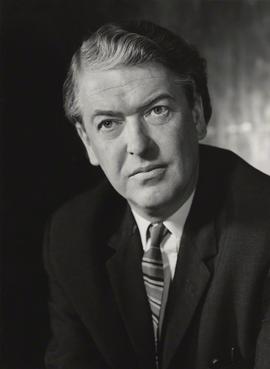
Sir Kingsley William Amis was an English novelist, poet, critic and teacher. He wrote more than 20 novels, six volumes of poetry, a memoir, short stories, radio and television scripts, and works of social and literary criticism. He is best known for satirical comedies such as Lucky Jim (1954), One Fat Englishman (1963), Ending Up (1974), Jake's Thing (1978) and The Old Devils (1986).

Recusancy was the state of those who remained loyal to the Catholic Church and refused to attend Church of England services after the English Reformation.

Sir Alan Arthur Bates was an English actor who came to prominence in the 1960s, when he appeared in films ranging from the popular children's story Whistle Down the Wind to the "kitchen sink" drama A Kind of Loving.

William Adams, better known in Japan as Miura Anjin, was an English navigator who, in 1600, became the first Englishman to reach Japan. He did so on a trading ship called Liefde under the leadership of Jacob Quaeckernaeck; it was the only vessel reaching Japan from a five-ship expedition launched by a company of Rotterdam merchants. Among the few survivors of the expedition who reached Japan, for more than a decade, the authorities did not allow Adams and his second mate Jan Joosten to leave the country. Earlier, they did permit Quaeckernaeck and Melchior van Santvoort to return to the Dutch Republic to establish formal trade relations. Adams and Joosten settled in Japan, and the two men became Western samurai.

John Bull is a national personification of the United Kingdom, especially in political cartoons and similar graphic works. He is usually depicted as a stout, middle-aged, country-dwelling, jolly and matter-of-fact man. He originated in satirical works of the early 18th century and would come to stand for "English liberty" in opposition to revolutionaries. He was popular through the 18th and 19th centuries until the time of the First World War, when he generally stopped being seen as representative of the "common man".
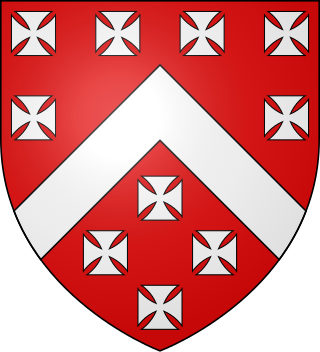
The title Baron Berkeley originated as a feudal title and was subsequently created twice in the Peerage of England by writ. It was first granted by writ to Thomas de Berkeley, 1st Baron Berkeley (1245–1321), 6th feudal Baron Berkeley, in 1295, but the title of that creation became extinct at the death of his great-great-grandson, the fifth Baron by writ, when no male heirs to the barony by writ remained, although the feudal barony continued. The next creation by writ was in 1421, for the last baron's nephew and heir James Berkeley. His son and successor William was created Viscount Berkeley in 1481, Earl of Nottingham in 1483, and Marquess of Berkeley in 1488. He had no surviving male issue, so the Marquessate and his other non-inherited titles became extinct on his death in 1491, whilst the barony passed de jure to his younger brother Maurice. However, William had disinherited Maurice because he considered him to have brought shame on the noble House of Berkeley by marrying beneath his status to Isabel, daughter of Philip Mead of Wraxhall, an Alderman and Mayor of Bristol. Instead, he bequeathed the castle, lands and lordships comprising the Barony of Berkeley to King Henry VII and his heirs male, failing which to descend to William's own rightful heirs. Thus on the death of King Edward VI in 1553, Henry VII's unmarried grandson, the Berkeley inheritance returned to the family. Therefore, Maurice and his descendants from 1492 to 1553 were de jure barons only, until the return of the title to the senior heir Henry, becoming de facto 7th Baron in 1553. Upon his death he was succeeded by his relative George Harding.

The Englishman Who Went up a Hill but Came down a Mountain is a 1995 romantic comedy film with a story by Ifor David Monger and Ivor Monger, written and directed by Christopher Monger. It was entered into the 19th Moscow International Film Festival and was screened in the Un Certain Regard section at the 1995 Cannes Film Festival.
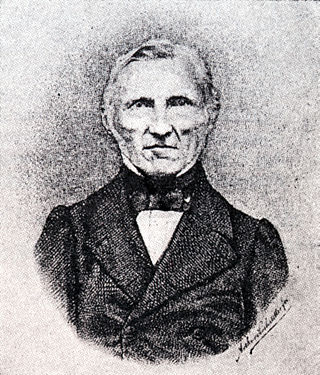
Philipp Christoph Zeller was a German entomologist.

... Nothing Like the Sun is the second solo studio album by English musician Sting. The album was originally released on 5 October 1987 on A&M (worldwide) as a double LP and single CD. The album explores the genres of pop rock, soft rock, jazz, reggae, world, acoustic rock, dance-rock, and funk rock. The songs were recorded in March–August 1987 during sessions that took place at Air Studios, in Montserrat, assisted by record producers Hugh Padgham, Bryan Loren, and Neil Dorfsman. It features a number of high-profile guest guitarists, including former Police member Andy Summers, Eric Clapton, Mark Knopfler, and Hiram Bullock, and is generally regarded as the culmination of the smoother, more adult-oriented sound of Sting's early work.

Malcolm "Mal" Douglass Whitman was an American tennis player who won three singles titles at the U.S. National Championships.
John Robert McCrum is an English writer and editor, holding senior editorial positions at Faber & Faber over seventeen years, followed by a long association with The Observer.
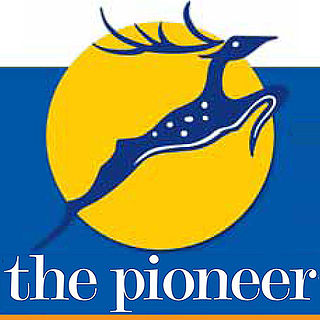
The Pioneer is an English-language daily newspaper in India. It is published from multiple locations in India, including Delhi. It is the second oldest English-language newspaper in India still in circulation after The Times of India. In 2010, The Pioneer launched its Hindi version in Lucknow.

"Dracula's Guest" is a short story by Bram Stoker, first published in the short story collection Dracula's Guest and Other Weird Stories (1914). It is believed to have been intended as the first chapter for Stoker's 1897 novel Dracula, but was deleted prior to publication as the original publishers felt it was superfluous to the story.
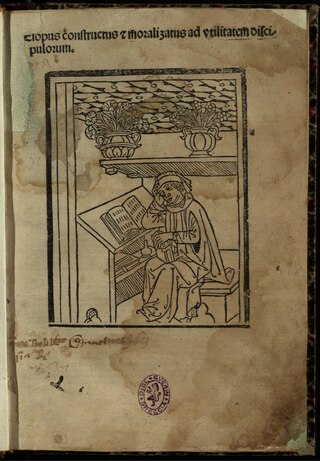
Gualterus Anglicus was an Anglo-Norman poet and scribe who produced a seminal version of Aesop's Fables around the year 1175.

John Kipling was the only son of British author Rudyard Kipling. In the First World War, his father used his influence to get him a commission in the British Army despite being decisively rejected for poor eyesight. His death at the Battle of Loos caused his family immense grief.

The Last Arrow is a 1997 historical novel by Canadian author Marsha Canham, the third instalment of her "Medieval" trilogy inspired by the Robin Hood legend set in 13th-century England. The novel was published by Dell Publishing in 1997 as a sequel to Canham's 1994 story In the Shadow of Midnight. It received generally positive reviews from book critics.

The Girl from Montmartre is a 1926 American silent romantic drama film directed by Alfred E. Green and starring Barbara La Marr in her last film role. It was distributed through First National on the day after La Marr died.

Right Through the Pack: A Bridge Fantasy is a 1947 book about the game of contract bridge by Robert Darvas and Norman de Villiers Hart. It includes 52 deals in which each of the 52 cards of the pack plays a significant role, described by and interspersed with comments from the playing cards themselves, the anthropomorphic "People of the Pack".

Andrew James Hamilton Lownie FRHistS is a British biographer and literary agent.
References
- Lee, Sidney, ed. (1896). . Dictionary of National Biography . Vol. 48. London: Smith, Elder & Co.